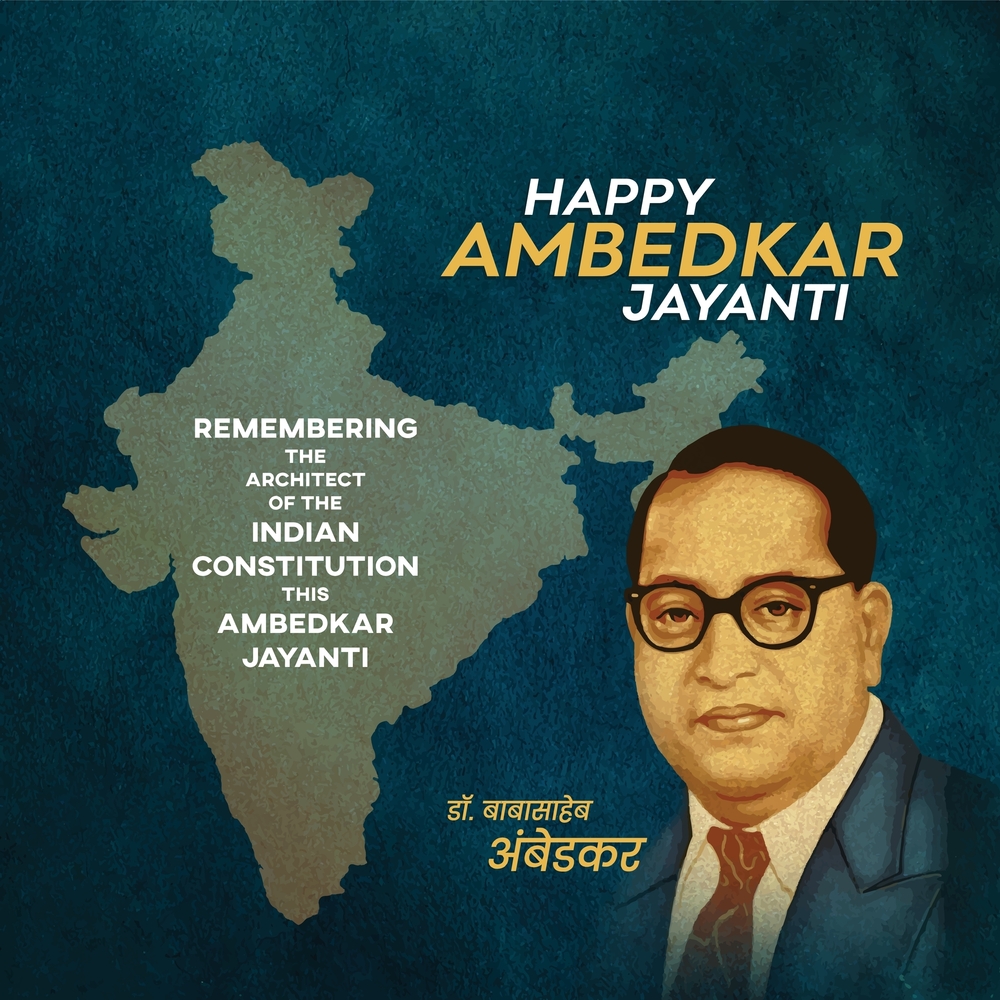Every educator holds the power to shape minds, instill values, and transform societies. As teachers, we find inspiration in figures who have revolutionized education and championed knowledge as a tool for social change. One such towering figure is Dr. Bhimrao Ramji Ambedkar, a visionary leader, social reformer, and architect of the Indian Constitution. On B.R. Ambedkar Remembrance Day and Ambedkar Jayanti, it is not just fitting but necessary for educators to reflect on his profound impact on education and the lessons we can draw from his life.
What happened on 14 April 1891?
On April 14, 1891, Bhimrao Ramji Ambedkar was born in Mhow, Madhya Pradesh, into a Dalit family. His early life was marked by hardship, discrimination, and social exclusion. Despite facing severe oppression, Ambedkar’s thirst for knowledge remained unquenchable. His journey from a marginalized child to a global scholar and constitutional architect is a beacon of hope for every educator and student. His birth is not just an event in history—it marks the beginning of a revolution in education and social justice.
Ambedkar’s experiences as a young boy were filled with struggles that many of our students today might relate to—limited access to education, lack of resources, and social bias. However, what sets his story apart is his unwavering determination. He pursued knowledge despite every hurdle placed before him. He understood that education was the strongest weapon against oppression, and he dedicated his life to ensuring that future generations would not have to endure the same challenges. Teachers today can take inspiration from his perseverance and use it as a driving force to uplift their students, particularly those from disadvantaged backgrounds.
The Teacher in Ambedkar
While we remember B.R. Ambedkar as a statesman and jurist, his role as a teacher is often overlooked. He was not just a student of knowledge but an advocate of education as the ultimate emancipator. His life is a testament to the power of perseverance in the face of adversity. From being born into an oppressed community to earning multiple doctorates from prestigious institutions like Columbia University and the London School of Economics, Ambedkar’s journey speaks volumes about the transformative power of education.
As a professor at the Sydenham College of Commerce and Economics in Mumbai, Ambedkar was deeply committed to imparting knowledge. He believed in education that empowered individuals, making them capable of critical thinking and self-reliance. His work as a teacher wasn’t just about imparting lessons from books; it was about instilling confidence, resilience, and a sense of justice in his students. He encouraged young minds to rise above their circumstances and use education as a tool for social change.
For teachers, his life is an exemplary case study of the importance of providing equal opportunities, fostering inclusive learning, and nurturing students who may face societal or economic disadvantages. He didn’t just break barriers; he ensured others could break them too. Every teacher who works towards inclusivity, equality, and critical thinking carries forward Ambedkar’s mission.

Ambedkar’s Vision for Education
Dr. Ambedkar firmly believed that education was the most potent weapon against social discrimination. He famously stated, “Cultivation of mind should be the ultimate aim of human existence.” This philosophy aligns deeply with the role of teachers—nurturing young minds, expanding their horizons, and equipping them with the tools to question injustice.
Ambedkar fought for universal education, knowing that a truly progressive society cannot exist if knowledge remains limited to a privileged few. His advocacy for education reforms laid the foundation for a more inclusive and accessible system in India. He pushed for reservations in education, recognizing that historical injustices could only be rectified by affirmative action. His contributions to the upliftment of marginalized communities remind us that education should be a tool for empowerment, not exclusion.
Lessons for Educators
- Teach Beyond the Textbook – Ambedkar’s education was not confined to classrooms. He sought knowledge from diverse sources and encouraged critical thinking. As educators, we must inspire students to think independently, challenge norms, and question the status quo.
- Promote Inclusivity in Education – Ambedkar fought tirelessly to ensure education reached every section of society. As teachers, we must foster classrooms that are inclusive, where every student feels seen, heard, and valued.
- Empower Through Knowledge – Education is not just about grades but about empowerment. Ambedkar’s life teaches us that knowledge can change destinies. Teachers must instill confidence in students, especially those from disadvantaged backgrounds, making them believe that learning can pave the way to a better future.
Ambedkar’s Relevance in Today’s Education System
Even today, issues of caste, class, and gender discrimination persist in our educational institutions. Dr. Ambedkar’s vision calls upon teachers to become catalysts for change. Whether in urban schools or rural classrooms, educators have the power to create an environment where every child, irrespective of their background, can dream and achieve.
With the rise of digital education, accessibility to knowledge has improved. However, the digital divide still exists, leaving many students behind. Ambedkar’s dream of education for all is yet to be fully realized. As teachers, we must advocate for policies that bridge this gap and ensure equitable access to learning resources.
134th Ambedkar Jayanti
The year 2025 marks the 134th Ambedkar Jayanti, a day dedicated to celebrating his contributions and legacy. For teachers, it is a moment to reflect on how we can further his mission in our classrooms. It is an occasion to remind students that education is the key to breaking barriers and creating an equitable society. Schools and institutions across the country commemorate this day with discussions, debates, and initiatives aimed at fostering Ambedkar’s ideals of justice, liberty, equality, and fraternity.
The Call to Action for Educators
As we observe B.R. Ambedkar Remembrance Day and Ambedkar Jayanti, let us not just commemorate him but carry forward his mission. Every teacher is a torchbearer of his legacy. Here’s how we can honor his vision:
- Encourage critical thinking: Challenge students to engage with diverse perspectives and develop their own informed opinions.
- Support marginalized students: Offer mentorship, extra guidance, and motivation to students who face societal barriers.
- Champion lifelong learning: Just like Ambedkar never stopped learning, educators should continuously update their knowledge and teaching methods.
- Advocate for educational reforms: Push for policies that promote inclusivity, accessibility, and quality education for all.
FAQs
- Why is Ambedkar considered an inspiration for teachers? Ambedkar’s advocacy for education as a tool for empowerment, his fight against discrimination, and his perseverance in the face of challenges make him an exemplary figure for educators.
- How did Ambedkar contribute to education in India? He introduced policies for inclusive education, fought for reservations, and emphasized critical thinking and empowerment through knowledge.
- What are the key lessons educators can learn from Ambedkar? Teachers can learn to promote inclusivity, encourage independent thinking, and empower students from disadvantaged backgrounds.
- How is Ambedkar Jayanti celebrated in schools? Schools hold discussions, debates, and special programs highlighting his contributions to education and social justice.
- What was Ambedkar’s famous quote on education? One of his most famous quotes is “Educate, Agitate, Organize.” which encapsulates his belief in education as the ultimate tool for change.
- Also read :
- Benefits of a Personalized Teaching
- Take your business online in 2025
- Make money online by working from home



